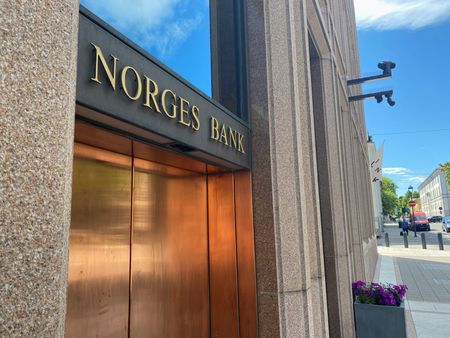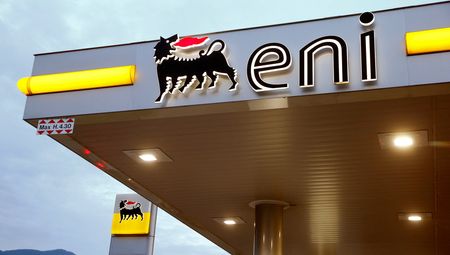By Charlie Conchie
LONDON (Reuters) -A ruling from the United Kingdom’s top court that will likely save car finance companies billions in compensation payouts could clear the way for a wave of consolidation in the sector.
The Supreme Court this month overturned much of a lower court ruling on car loan sales practices, leading some industry experts to say the compensation bill could be less than half of initial estimates of about 30 billion pounds ($41 billion).
The lower cost – coupled with the fact that many private equity firms have owned car finance companies beyond their typical investment horizons – could help trigger a spate of dealmaking in a sector that has been in limbo for about 18 months.
“I think it’s the real activity that will start now,” said Hyder Jumabhoy, a partner at law firm White & Case. The owners of car finance lenders have enough clarity to begin preparing them for sale as they await full details of the redress scheme, he added.
Jumabhoy’s view was echoed by three other corporate advisers contacted by Reuters, although another three cautioned that uncertainty could hold back dealmaking until at least next year.
London-based private equity firm Cabot Square Capital has hired BNP Paribas to handle a sale of Blue Motor Finance, two people familiar with the matter said. Blue Motor made a loss of 8.5 million pounds in 2023 on revenue of 53 million pounds, according to its latest full-year accounts.
Startline, owned by U.S. hedge fund The Baupost Group, could also come to market in the coming months, advisers said. Startline reported 100.3 million pounds of interest receivable and other income in 2023 and a loss of around 4.25 million pounds, according to its latest accounts.
“There’s a series of highly attractive assets which have sat in private equity portfolios for longer than most would have expected, more for regulatory or macro reasons as opposed to anything else,” said Elliot Reader, a director at investment bank Houlihan Lokey.
“Now is a period of time where there is some more certainty and these assets can start to come to market.”
Cabot Square Capital, Blue Motor and Startline did not respond to requests for comment. The Baupost Group declined to comment.
To be sure, there are still uncertainties for the industry. Some advisers said the lack of clarity around the final redress bill could dampen deals until later next year.
“Does it (the Supreme Court ruling) pave the way for future M&A activity in the motor finance space given recent inactivity? Yes, but I’d expect any meaningful movement to emerge throughout 2026,” said Antony Walsh, partner and international head of corporate at Eversheds Sutherland.
GROWING MARKET
Following the court ruling, Britain’s financial watchdog is working on a compensation scheme for car loans that included so-called discretionary commission arrangements – those where the broker could adjust the interest rate offered to a customer – if they were not properly disclosed.
The regulator said this month that it was hard to predict the cost of the scheme, but that estimates in the middle of a 9 billion to 18 billion pounds range were “more plausible”.
Despite the spectre of hefty payouts, advisers said there was likely to be interest from potential buyers in a growing market that underpins much of Britain’s automotive industry.
Around 80% of all new cars sold to consumers in Britain in the 12 months to April were bought using a form of motor finance, according to the Finance & Leasing Association.
New business rose 6% in value in the first six months of 2025, bringing the total size of the point-of-sale consumer car finance market at the end of June to about 86 billion pounds in terms of the value of outstanding contracts, it added.
Potential bidders could include bigger banks or private equity and private credit funds, Reader and Jumabhoy said.
Britain’s banking sector has already seen a flurry of deals, including Santander UK’s recent swoop on TSB.
Analysts at credit rating agency Moody’s said in a June note that the focus could now turn to specialist lenders, with larger motor finance-exposed firms like Aldermore and Close Brothers among potential targets.
Aldermore’s owner, South Africa’s FirstRand, and Close Brothers led the legal challenge that culminated in the Supreme Court ruling on Aug. 1.
Close Brothers, whose shares are up around 25% since the ruling, declined to comment.
“I’ve spoken to CFOs of other banks who tell me that they think that Close Brothers is a good business, but they would not touch it with a barge pole until motor finance is well and truly dusted,” said RBC Capital Markets analyst Benjamin Toms, referring to certainty over the eventual compensation costs.
A FirstRand spokesperson said it was not considering a sale of Aldermore and the ruling would have no impact on its strategy for the unit.
($1 = 0.7385 pounds)
(Reporting by Charlie Conchie. Editing by Anousha Sakoui and Mark Potter)










